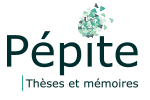Test selection practices in a large IT company
Les pratiques de sélection de test dans une grande entreprise d’informatique
- Comportement des développeurs
- Sélection de test automatisée
- Logiciels -- Maintenance
- Essais (technologie)
- Langages de programmation orientés objet
- Pharo (langage de programmation)
- Industrie
- Tests fonctionnels (informatique)
- Langue : Anglais
- Discipline : Informatique et applications
- Identifiant : 2017LIL10101
- Type de thèse : Doctorat
- Date de soutenance : 08/11/2017
Résumé en langue originale
Worldline, une importante société d’informatique, doit améliorer la qualité de ses projets. Nous avons réalisé un audit sur plusieurs projets de l’entreprise afin d’identifier comment éviter l’échec des projets: aucune conclusion définitive n'en a été tirée. Cependant, il a mis en lumière le besoin d’améliorer l’utilisation des tests. Effectivement, tester chaque partie du code est requis pour éviter l’échec du projet. Dans l’industrie, notamment à Worldline, l’automatisation des tests a commencé dans le but de maîtriser le comportement des applications. Mais, exécuter tous les tests après un changement peut être une coûter plusieurs heures. Le retour sur le code changé est retardé et le développeur perd du temps pour découvrir les potentiels bogues. La solution généralement proposée dans la littérature consiste à réduire le nombre de tests à lancer en sélectionnant seulement ceux relatifs aux derniers changements effectués. L’approche sélectionne un jeu de tests réduit et approprié qui détectera de potentielles régressions dans l’application. Chaque approche de sélection de tests a besoin d’être étudiée dans le contexte de Worldline et adaptée en conséquence pour convenir aux habitudes des développeurs. Avant d’intégrer une telle approche, une étude a été faite pour connaître les habitudes actuelles des développeurs vis-à-vis de la sélection de tests. Grâce à cette étude, nous avons développé un outil pour les développeurs visant à effectuer la sélection des tests. Le but est aussi d’étudier l’impact de cet outil sur leur comportement. Nous espérons que cette approche de sélection de tests apportera des changements dans leur processus de développement.
Résumé traduit
Worldline, a major IT company, has to increase the quality of its projects. We performed an audit of several projects of the company to identify how to avoid project failure: no final conclusion has been drawn. However, it highlighted a need to enhance testing usage. To test every piece of code is compulsory to avoid project failure. In industry and more specifically in Worldline, automation of tests has begun to ensure the proper behavior of their applications. But, ensuring the execution of all tests after a change can be a costly operation requiring several hours. Feedback on the changed code is delayed and developer has to spent time to discover the potential bugs. The solution generally proposed in literature consists in reducing the number of tests to run by selecting only the ones related to the last changes made by the developer. The approach selects a suitable and small set of tests to detect potential regression in the application behavior.These approaches need to be studied in the context of Worldline and consequently adapted to suit developers’ habits. Before integrating such an adapted test selection approach, a study of the testing behavior of the developers has been done to get their current test selection usage. Based on the study of the Worldline environment, we developed a tool for the developers aiming to perform test selection.The goal is also to study the impact of this tool on their behavior. We hope that the test selection approach that is packaged in a tool adapted to the Worldline developers will bring a change in their developmentprocess.
- Directeur(s) de thèse : Anquetil, Nicolas - Etien, Anne
- Laboratoire : Centre de Recherche en Informatique, Signal et Automatique de Lille - Centre Inria de l'Université de Lille
- École doctorale : École doctorale Sciences pour l'ingénieur (Lille)
AUTEUR
- Blondeau, Vincent


